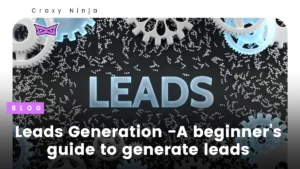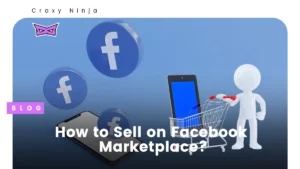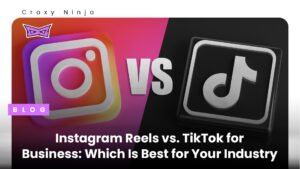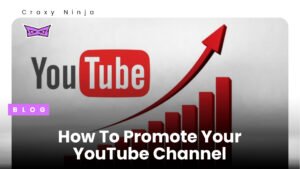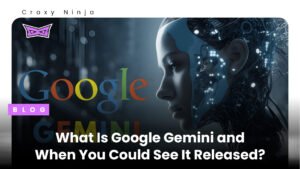In the ever-evolving landscape of marketing, businesses are constantly on the lookout for innovative tools to engage with their audience and streamline their operations.
One such tool that has gained significant attention is ChatGPT, a powerful language model developed by OpenAI.
This blog aims to shed light on the definition of ChatGPT, the benefits and challenges of using it in marketing, and provide guidance on where it should and shouldn’t be utilized.
ChatGPT: A Brief Overview

ChatGPT, an AI chatbot, serves as a valuable informational resource with an extensive knowledge base, akin to platforms like Google or Wikipedia. However, what distinguishes ChatGPT from these platforms is its unique approach – it operates through interactive dialogues rather than presenting search results.
What truly sets ChatGPT apart from other chatbots is its remarkable capability to provide dynamic and sophisticated responses that closely resemble human speech. This remarkable feat is made possible by the utilization of Generative Pretrained Transformer 3 (GPT-3), a robust model developed and fine-tuned by OpenAI.
Through ChatGPT, users can pose questions and receive responses based on their input. This advanced chatbot can acknowledge errors, engage in counter-questions, and tactfully decline inappropriate requests.
Interested in harnessing ChatGPT for digital marketing purposes? Keep reading to find out how.
Benefits of Using ChatGPT in Marketing
Following are some plus points of using ChatGPT:

Personalization
One of the standout benefits of ChatGPT is its ability to generate personalized content. Marketers can use ChatGPT to craft tailored messages, recommendations, and responses for individual customers, enhancing the customer experience.
24/7 Availability
ChatGPT can operate around the clock, offering instant responses to customer queries and engagement at any time. This is particularly useful for businesses catering to global audiences in different time zones.
Cost-Efficiency
Automating certain marketing tasks with ChatGPT can reduce the need for human intervention. This translates into cost savings for businesses, especially in customer support and content generation.
Data-Driven Insights
ChatGPT can analyze vast amounts of data to extract valuable insights about customer preferences, trends, and sentiment. Marketers can use these insights to make informed decisions and fine-tune their strategies.
Consistency
ChatGPT ensures a consistent brand voice and messaging across all customer interactions, helping businesses maintain their identity and professionalism.
Challenges of Using ChatGPT in Marketing
Let’s see some of the setbacks of using ChatGPT for marketing:

Lack of Empathy
While ChatGPT can generate responses, it lacks true empathy and emotional intelligence. It may struggle to understand and address complex emotional customer queries effectively.
Accuracy Concerns
ChatGPT’s responses are based on patterns it has learned from data. It may provide inaccurate information or respond to misinformation, potentially damaging a brand’s credibility.
Loss of Personal Touch
Overreliance on ChatGPT can result in a loss of the personal touch that human interactions provide. Customers may prefer speaking with real people for certain sensitive or complex issues.
Ethical Considerations
Using ChatGPT in marketing raises ethical concerns about data privacy, misinformation, and AI biases. Ensuring responsible AI use is crucial.
Where to Use ChatGPT in Marketing

Customer Support
ChatGPT can be a valuable addition to customer support teams. It can handle routine inquiries, provide product information, and offer troubleshooting assistance.
Content Generation
Marketers can use ChatGPT to generate content ideas, draft blog posts, create social media captions, and more. It can be a helpful tool for content marketers looking to boost efficiency.
Email Marketing
ChatGPT can automate email responses to customer inquiries, send personalized product recommendations, and assist in email campaign planning and execution.
Where Not to Use ChatGPT in Marketing

Sensitive Customer Interactions
Avoid using ChatGPT for highly sensitive or emotionally charged interactions. Customers facing issues like a product defect or a billing error may require human empathy and understanding.
Strategic Decision-Making
While ChatGPT can provide data-driven insights, it’s not a substitute for human strategic thinking. Avoid relying solely on ChatGPT for making critical marketing decisions.
Brand Voice and Storytelling
Your brand’s unique voice and storytelling should ideally come from human creativity and understanding. While ChatGPT can assist, it should not be the sole source of your brand’s narrative.
Ethical and Legal Matters
Be cautious when using ChatGPT for marketing campaigns that involve ethical or legal considerations, such as compliance with privacy regulations. Human oversight is essential to ensure responsible marketing practices.
ChatGPT is a powerful tool that can bring numerous benefits to your marketing efforts, from personalized customer interactions to cost-efficient content generation.
However, it’s essential to be mindful of its limitations and ethical considerations. Use ChatGPT strategically, recognizing where it can enhance your marketing and where it’s better to rely on human touch and expertise.
By finding the right balance, you can leverage Chat GPT’s capabilities to enhance your marketing strategies and deliver better customer experiences in an ever-evolving digital landscape.



